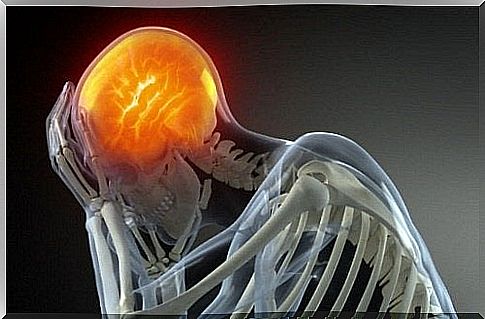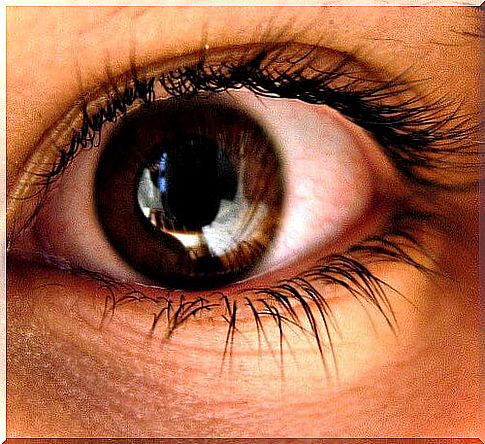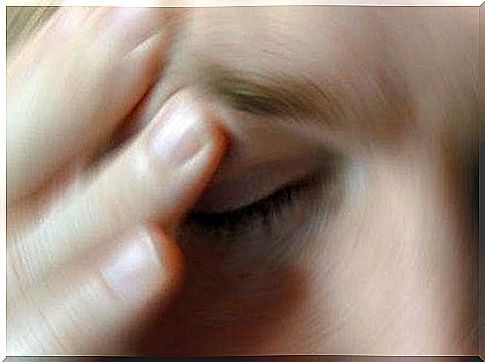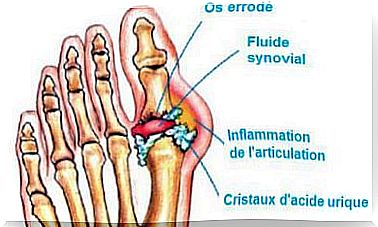6 Unrecognized Effects Of Anxiety On The Body
If you don’t manage it well, anxiety can cause a series of physical symptoms that can eventually condition your life. It is important to find a solution to the root of the problem.

Do you know the occasional anxiety, the one that lasts for hours or even days because of a worry, a goal. Or a stressful fact or a short-term challenge, but do you know the effects of anxiety on the body?
When anxiety is maintained over time, when it is not managed and when we allow it to increase, its psychological impact leaves a mark on our health and on various aspects of which we are not always aware. .
Today we want to talk to you about the effects of anxiety on the body, those impacts that we sometimes associate with other causes, overlooking the root of the problem: the underlying anxiety.
1. Dilated pupils

Pupil dilation, unrelated to low light sensitivity, is a symptom of an underlying problem that needs to be known and treated.
- Having dilated pupils can be due, among other causes, to a continuous high alert state.
When our anxiety is very high, it is common to experience this unusual symptom which can cause nausea, visions of strange lights and reduced visual quality.
2. Difficulties in swallowing
Difficulty swallowing when we eat or drink is another very common symptom when we are anxious.
- This symptom is called dysphagia and it is somatization due to anxiety. It is linked to the glands responsible for producing saliva.
- We must not forget that anxiety has a very concrete end: preparing us to escape.
So the main objective of the body is to reserve all its fluids to take care of its muscles, because they are the ones who must help us to run and to flee. These liquids are therefore put aside to be able to perspire.
If we don’t have saliva in our mouths due to anxiety, it is very difficult to chew the food and even more so to swallow it.
3. Anxiety causes the headache
Anxiety causes all the veins and arteries in our body to contract for a very real purpose: to provide more blood to the muscles.
- The blood flow, therefore, is more intense and this promotes vasoconstriction, which turns into a classic headache.
- This type of headache is more common in the early hours of the day and in the afternoon.
4. Jaw pain
There are certain areas of our body that tend to accumulate anxiety and stress more strongly. We are particularly talking about the neck, shoulders, back and jaw.
If you notice that this jaw pain is more intense in the morning and it increases even up to your ears, you are probably suffering from bruxism. That is, during the night you grind your teeth due to stress and anxiety.
It is then necessary to consult a doctor because even if a dental aligner can help you, it is preferable to work on the sources of this anxiety and to manage them well.
5. Going to the bathroom more often than usual because of anxiety
We have all lived it before: when we face an anxiety situation, such as an exam or a professional interview, we want to go to the bathroom very often.
- This is very common, but curious at the same time, because when we suffer from anxiety the kidney tends to produce less urine. Why ? As we said above, the body saves fluids to deliver them to the muscles.
- But in its basic need to shed unnecessary weight to escape as quickly as possible, our brains order us to go to the bathroom to flush out urine. This is what makes us evacuate only “a few drops”.
6. Derealization: the feeling that what surrounds us is not real and that we are not part of what we see

This is a strange fact, but anyone who has ever suffered from a period of very intense anxiety or stress will know what we are talking about.
It’s when, all of a sudden, we have a clear sense that not everything around us is real. It’s like seeing the world from the outside and feeling like you’re not part of it.
What is this due to? You should know, first of all, that if this phenomenon happens to you often, you should consult a doctor.
- Intense anxiety affects our lungs.
- What we often do is breathe very quickly and when we accumulate too much oxygen it is common to experience two things: the first is hyperventilation and the second is a certain feeling of derealization.
Our brain does not properly understand this situation and it is common to experience this uncomfortable feeling.
To conclude, we are sure that you have surely noticed any of these symptoms. It doesn’t matter if it happens once or twice. The risk arises as soon as these situations become common and recurrent.
Now that you know the effects of anxiety on the body, seek help, talk to your doctor, and better manage your anxiety attacks.









